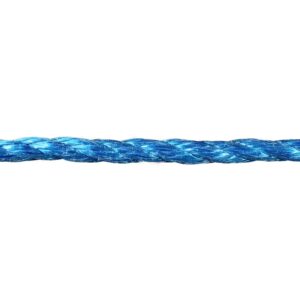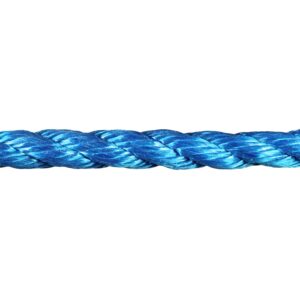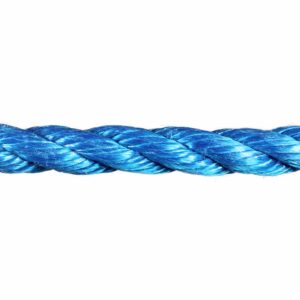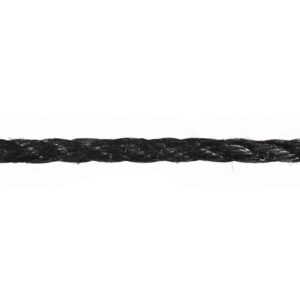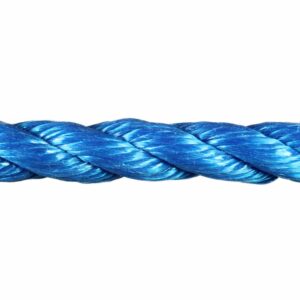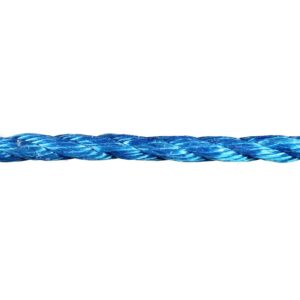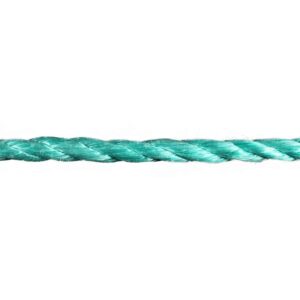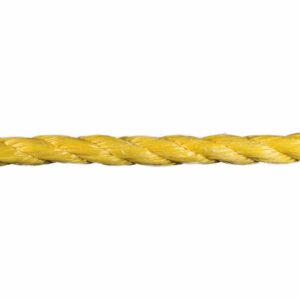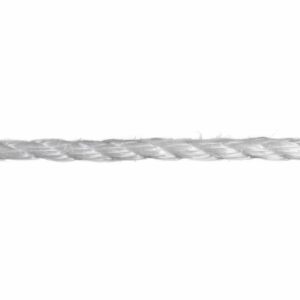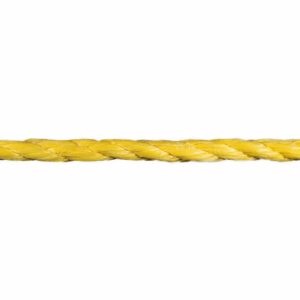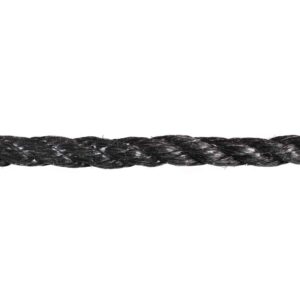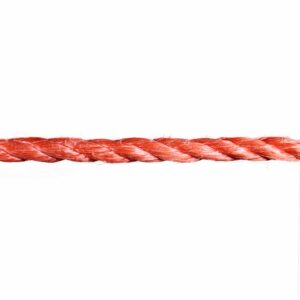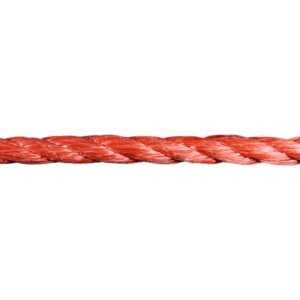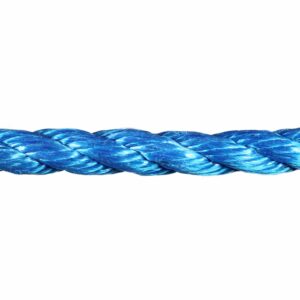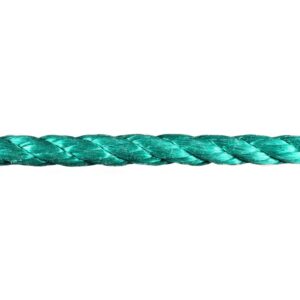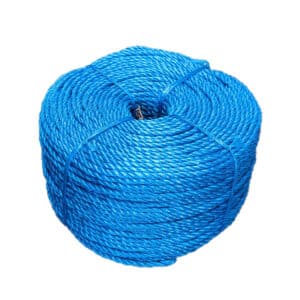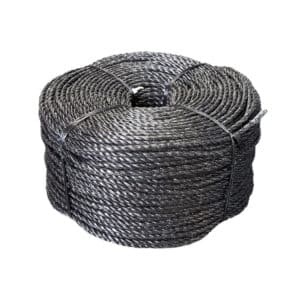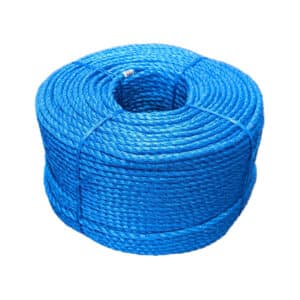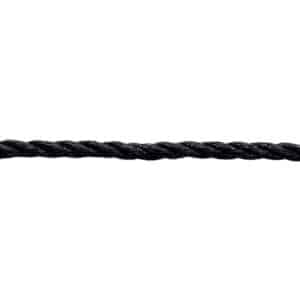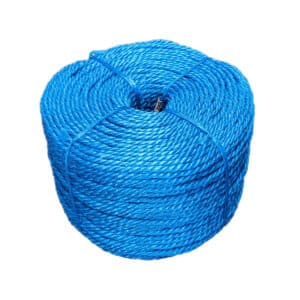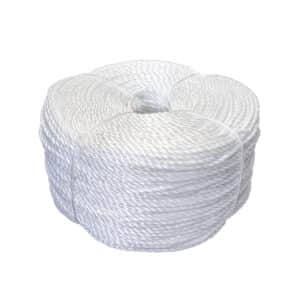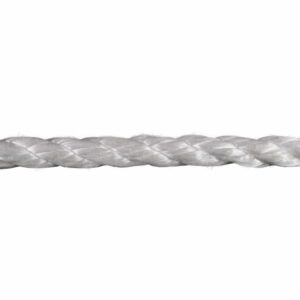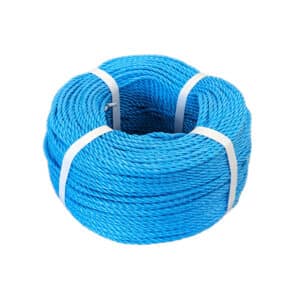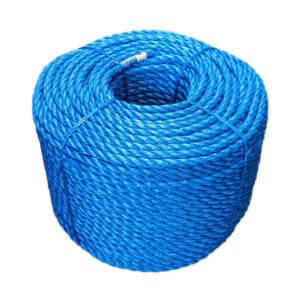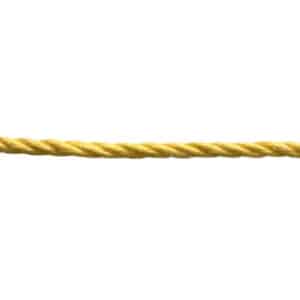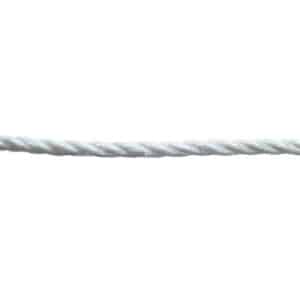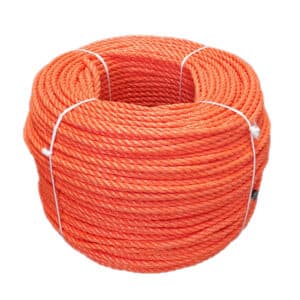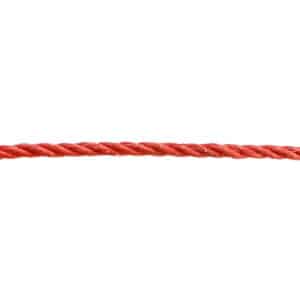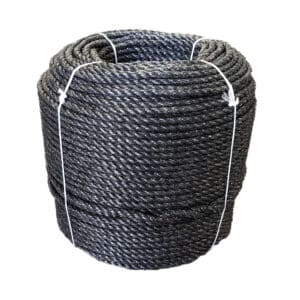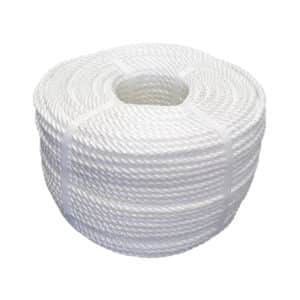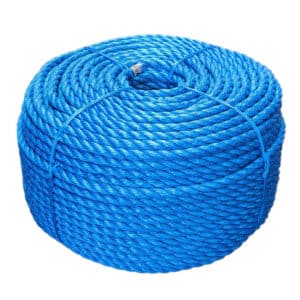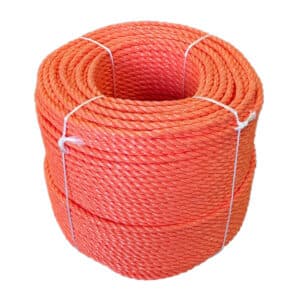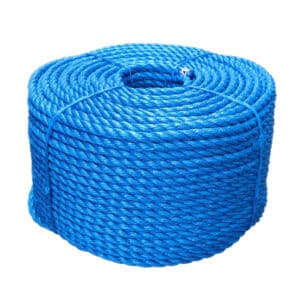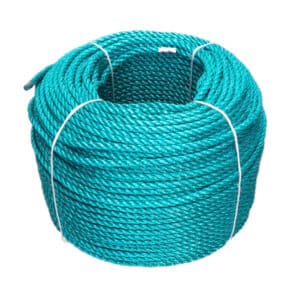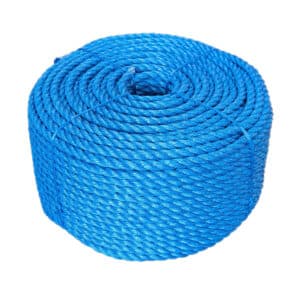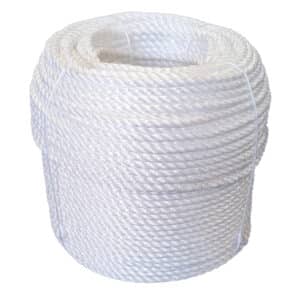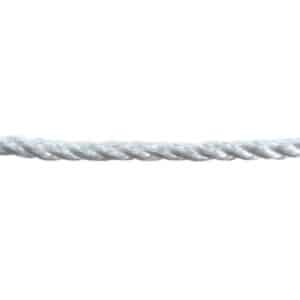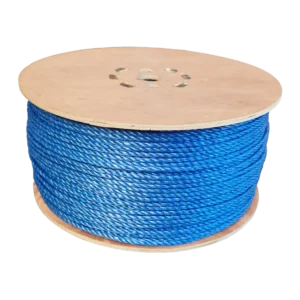Polypropylene Rope
Also known as Polyprop or Poly rope, Polypropylene is a versatile rope that is used for a range of everyday and commercial applications including work around electrical lines.
Our Polypropylene rope comes in 2 types:
Blue Split Film: A cost effective, commercial, general purpose rope.
Yarn Construction: Higher quality rope that can be used for lifting and is break load certified. Available in black, yellow, green, orange and white. (All colours have the same attributes.)
Key properties at a glance:
- Rot and water resistant
- Strong and durable
- Floats and does not absorb water
- Lightweight
- Can be spliced
- Made in Europe
Related: Polyethylene, Nylon, Floating Rope, Commercial Fishing, Rope Hardware
Polypropylene Rope Technical Details
Diameter / Weight / Break load
| Diameter | Weight per 220m (kg) |
Break load (kg)* Blue |
Break load (kg)* Other colours |
| 4mm | 1.5 | – | 284 |
| 6mm | 3.7 | 550 | 600 |
| 8mm | 6.6 | 960 | 1,060 |
| 10mm | 10 | 1,425 | 1,560 |
| 12mm | 14.5 | 2,030 | 2,210 |
| 14mm | 20 | 2,790 | 3,050 |
| 16mm | 25.5 | 3,500 | 3,770 |
| 18mm | 32.5 | 4,450 | 4,810 |
| 20mm | 40 | 5,370 | 5,800 |
| 22mm | 48.5 | – | 6,950 |
| 24mm | 57 | 6,500 | 8,120 |
| 28mm | 78 | – | 10,700 |
| 32mm | 101 | – | 13,460 |
| 36mm | 129 | – | 16,920 |
| 40mm | 158 | – | 20,490 |
*Break load for indication purposes only. Break loads will lower as a result of splicing and knotting.
Resistance
| Resistance | Description |
| UV resistance | Moderate |
| Abrasion resistance | Split Film: Moderate / Yarn Construction: Good |
| Rot and mould | Yes |
| Chemical | Good resistance to most acids, alkalis. |
Properties
| Properties | Description |
| Construction | Twisted 3-strand split film or yarn construction |
| Material | Synthetic |
| Quality certified | ISO 9002 |
| Appearance | Blue, white, yellow, orange, green, black. Smooth, shiny, synthetic appearance |
| Feel | Hard, smooth, slippy surface |
| Handling | Very lightweight. Flexible. Can also be softened |
| Density | 0.91 |
| Strength (dry) | Strong, tough, durable all-round rope. Not as strong as Nylon or Polysteel |
| Strength (wet) | Same as when dry. No loss of strength |
| Shock absorbency | Good |
| Elongation at break load | Moderate |
| Stretch (elasticity) | Low |
| Performance in water | Floats. Does not absorb water. Does not weaken or shrink when wet |
| Melting point | 170°C |
| Electrical conductivity | Poor |
| Biodegradable | No |
| Storage | Wet or dry environments |
| Knot retention | Low |
| Can be spliced? | Yes – easily |
| Can be cut? | Yes but ends will unravel. Recommend melting ends with flame to seal them |
| Can be dyed? | No |
| Can be softened? | Yes – a popular method uses water and fabric softener |

